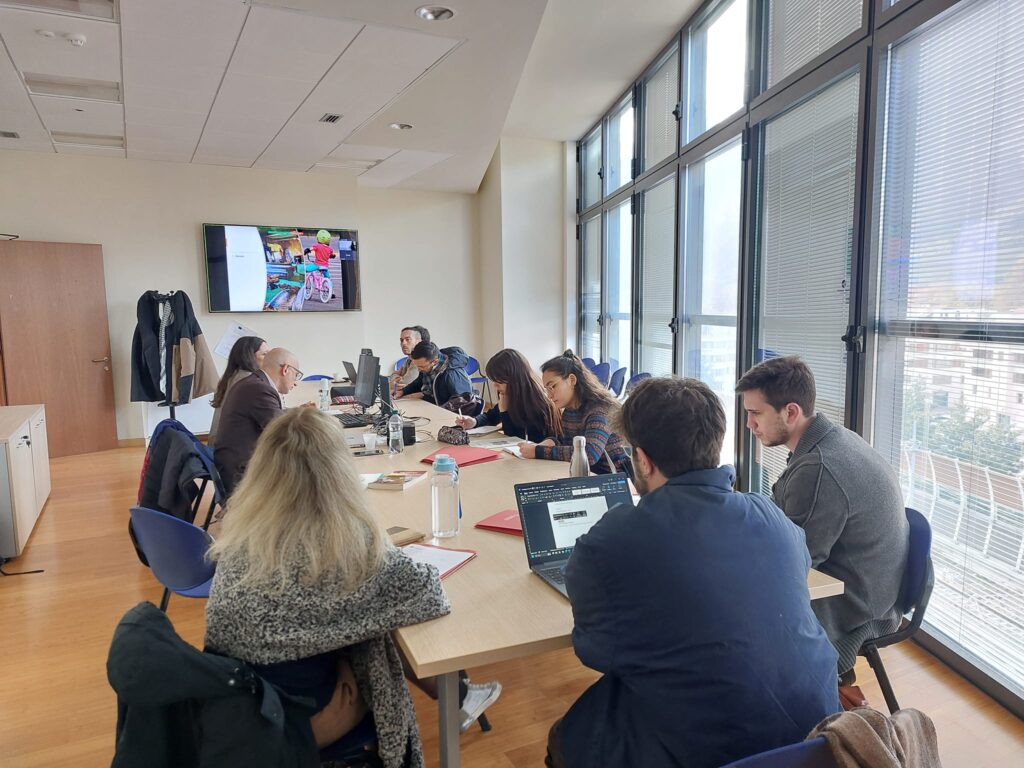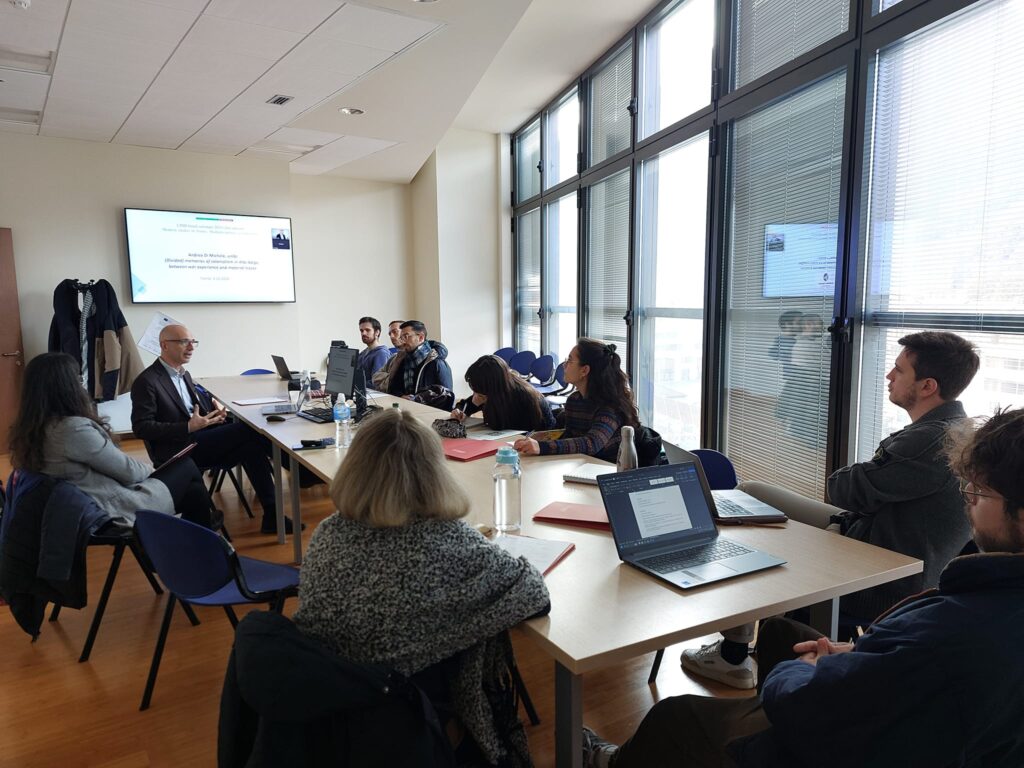Address: Palazzo Paolo Prodi, Via Tommaso Gar 14, Trento
Room: Room Piscopia
Time: 1 pm
Pictures of the event


Speakers
Federica Meconi
Topic: Past memories shape empathy / I ricordi influenzano l’empatia
Description: Sharing others’ emotions is something that we all experience every day. The ability to share others’ emotions is called empathy. Empathy is a powerful social glue that constantly nourishes social interactions and reduces distances between individuals. Intuitively, sharing similar experiences enriches our ability to share the emotions associated with those experiences. However, whether and how we relive our own experiences when sharing others’ emotions is still not clear. Remembering our experiences can help us represent others’ inner states to respond appropriately to others’ needs. However, this might not always be the case if we shared a similar experience but not the associated emotion. Can we put aside our memories to understand others’ emotive states in these cases?
Autobiographical memories collected through social interactions play a critical role in progressively shaping new interacting behaviour. Since both memory and empathy contribute to improving social interactions, investigating the relation between autobiographical memories and empathy can improve our understanding of the boundaries that often exist between individuals.
Bio: Federica Meconi graduated in Italy at the University of Padova under the supervision of Prof. Paola Sessa. In 2017, she joined the University of Birmingham, first as a Research Fellow on a Marie-Curie individual fellowship, under the supervision of Dr Simon Hanslmayr and Prof. Ian Apperly, and then as a Senior Research Fellow funded by the ESRC, to explore the contribution of autobiographical memory to empathy. Federica recently joined the Department of Psychology and Cognitive Sciences at the University of Trento as an assistant professor. Her current research investigates self-perception in empathy and the role of memory and social abilities in visual perception. Together with her collaborators at the University of Trento and the University of Milano-Bicocca, she was recently awarded a MIUR-PRIN 2022 funding to explore the developmental trajectory of dehumanization, which is the other side of empathy.
Andrea Di Michele
Topic: Le memorie (divise) del colonialismo in Alto Adige, tra esperienza di guerra e tracce materiali / (Divided) memories of colonialism in Alto Adige, between war experience and material traces
Description: Le due maggiori comunità linguistiche dell’Alto Adige hanno regolarmente prodotto memorie differenti intorno ai più significativi eventi della storia del Novecento. Ciò è avvenuto in particolare in riferimento ai tornanti storici più drammatici: guerre, fascismo, occupazione nazista. La relazione si occuperà in particolare delle guerre coloniali fasciste e delle relative tracce materiali presenti nella città di Bolzano, per capire come tedeschi e italiani hanno rielaborato la loro partecipazione a quei conflitti e quali rapporti hanno sviluppato con i luoghi che ancora oggi rimandano a persone e avvenimenti del colonialismo italiano.
Bio: Andrea Di Michele è professore di Storia contemporanea alla Libera Università di Bolzano, dove insegna didattica della storia. Si occupa di storia delle regioni di confine, di fascismo e di Italia repubblicana. Tra le sue più recenti pubblicazioni: Terra italiana. Possedere il suolo per assicurare i confini 1915-1954, Roma, Laterza, 2023; History Education at the Edge of the Nation. Political Autonomy, Educational Reforms, and Memory-shaping in European Periphery, Cham, Palgrave Macmillan, 2023 (curato con P. Colla); Rethinking Fascism. The Italian and German Dictatorships, Berlin/Boston, De Gruyter, 2022 (curato con F. Focardi); Tra due divise. La Grande Guerra degli italiani d’Austria, Roma, Laterza, 2018 (tradotto in tedesco e russo).
